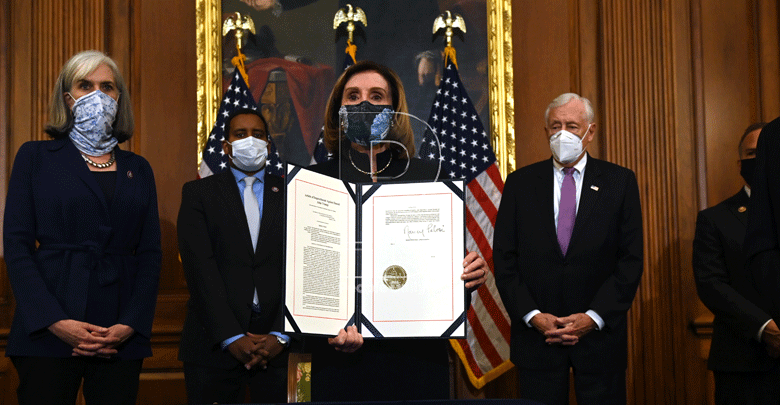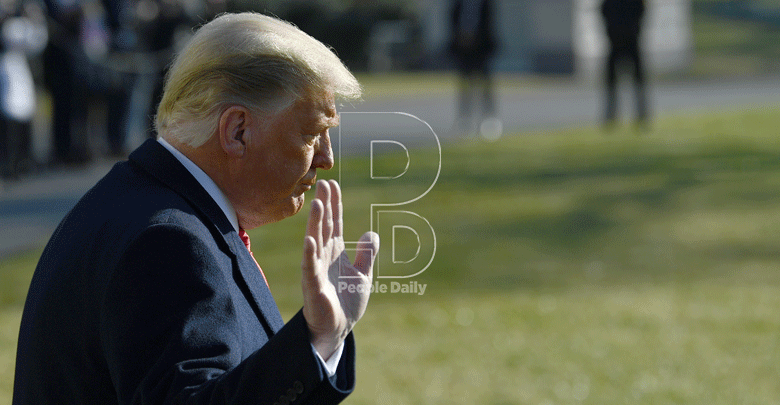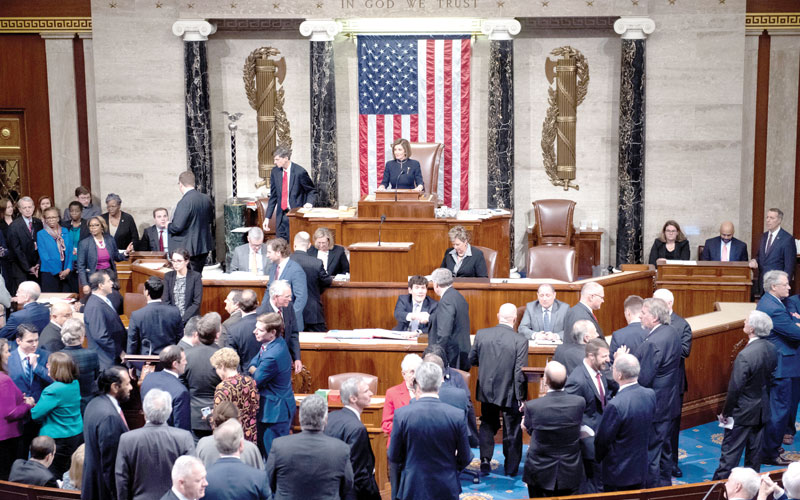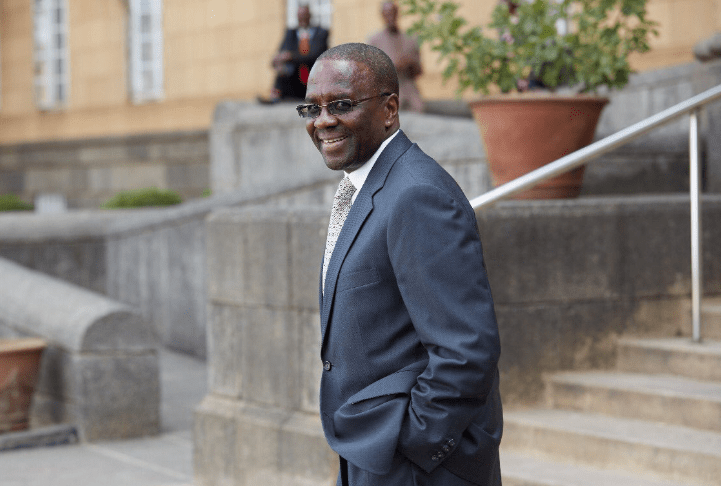Trump faces Senate trial after historic second impeaching

Washington, Thursday
Donald Trump faces trial in the Senate after becoming the first US president to be charged with misconduct in office for a second time.
Trump is accused of inciting a mob that stormed Congress last week after he repeated false claims of election fraud. Five people died.
The trial will be held after the president leaves office next Wednesday.
If Trump is convicted, senators could also vote to bar him from ever holding public office again.
The trial follows Wednesday’s vote in the House of Representatives that formally charged – or impeached – the president with “incitement of insurrection” for his role in the riot.
The Republican president has rejected responsibility for the violence. In a video released by the White House after the vote, he called on his supporters to remain peaceful, without mentioning his impeachment.
The FBI has warned of possible armed protests planned for Washington DC and all 50 US state capitals in the days before Joe Biden, a Democrat, is inaugurated as the new US president.
The Senate – the upper house of the US Congress – will hold a trial to determine the president’s guilt but this will not happen during Trump’s remaining week in office.
Republican Senate leader Mitch McConnell said there was “simply no chance that a fair or serious trial” could conclude given “the rules, procedures, and Senate precedents” that govern trials involving presidents.
A two-thirds majority will be needed to convict Trump, meaning at least 17 Republicans would have to vote with Democrats in the evenly split, 100-seat chamber.
As many as 20 Republicans are open to convicting the president, the New York Times reported on Tuesday.
In a note to colleagues, McConnell said he had not made a final decision on how he would vote.
If Trump is convicted, senators could then hold another vote to block him from running for elected office again, which he has indicated he planned to do in 2024.
Trump was impeached by the House in 2019 over his dealings with Ukraine, but acquitted by the Senate.
Impeachment charges are political, not criminal. The president was accused by the House of inciting the storming of the Capitol – the seat of the US Congress – with a speech on 6 January to supporters outside the White House.
He urged them to “peacefully and patriotically” make their voices heard, but also to “fight like hell” against an election that he falsely told them had been stolen.
Following Trump’s remarks, his supporters broke into the Capitol, forcing lawmakers to suspend certification of election results and take shelter while the building was placed on lockdown.
The article of impeachment stated that Trump “repeatedly issued false statements asserting that the presidential election results were fraudulent and should not be accepted”.
It says he then repeated these claims and “wilfully made statements to the crowd that encouraged and foreseeably resulted in lawless action at the Capitol”, leading to violence and loss of life. – BBC











